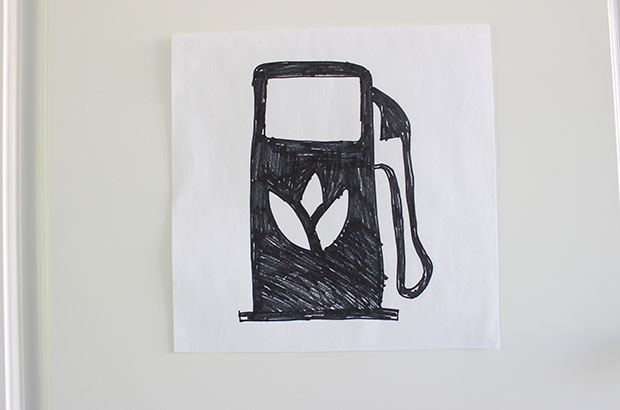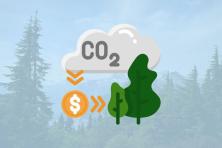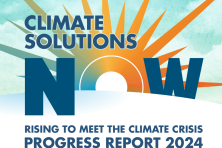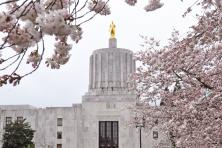On Monday, a marathon public hearing on HB 1110 Clean Fuel Standard in the Senate Transportation committee demonstrated the consistent, deep, and intense support to address transportation emissions and climate change, increase cleaner transportation and electrification options, invest in communities most impacted by air pollution, and join working policies in CA, OR, and BC.
Testimony in opposition focused on concerns from timber industry-funded groups regarding potential impacts to the logging sector. In 2019, legislators included exemptions to address these concerns and allow
various sectors time to phase-in as technology advances and cleaner options become more readily available, accessible, and affordable. HB 1110 exempts fuel used off-road by logging trucks and all fuel used in timber harvest, mining, construction, and other agricultural purposes until 2028. Previous hearings on WA’s HB 1110 in 2019 or 2020 have not drawn such visible opposition, particularly not from industry-funded groups as present in Monday’s hearing. Notably Public Lands Commissioner Hilary Franz, testifying in support of the bill, acknowledge the Dept. of Natural Resources is currently working to build Washington’s clean fuel economy via selling forest residuals (biomass) for renewable fuel production. Archived hearing can be viewed here.
Public support in WA continues to reflect a statewide desire to take action on transportation emissions via a Clean Fuel Standard. A recent poll by Elway and Crosscut showed strong public support across the state at 66% in favor of addressing transportation emissions, with other recent polling showing support for passage of a Clean Fuel Standard across all income levels, both rural and urban areas, and even drivers who commute alone or have concerns about the price of gasoline. Recent efforts to implement a regional Clean Fuel Standard by the Puget Sound Clean Air Agency also attracted wide support across the Agency’s four-county jurisdiction with 95% of the over 6,000 public comments submitted in favor of a strong rule.
There has been strong support throughout its multi-year campaign to pass a Clean Fuel Standard, with the House of Representatives also passing HB 1110 in 2019. The American Lung Association, the Washington Academy of Family Physicians, and the Washington State Medical Association see a Clean Fuel Standard as one of the most important ways to improve public health by decreasing sources of air pollution. Beyond public health organizations, the bill has support from a broad and diverse group, including local elected officials, the Port of Seattle, Alaska Airlines, automobile manufacturers, waste haulers, clean energy businesses, and science and medical professionals. It is one of four priorities of the Environmental Priorities Coalition this year as well.
The bill will continue to be considered through the end of the legislative session.
ABOUT HB 1110 CLEAN FUEL STANDARD
A Clean Fuel Standard requires oil producers and refiners to reduce the carbon intensity of gasoline and diesel (20% reduction by 2035) or invest in cleaner fuels by deploying electric vehicles and sustainably-produced biofuels. Washingtonians spend over $9 billion annually on mostly imported gasoline and diesel, while shipping many locally-produced clean fuels to other markets that have Clean Fuel Standard policies in place. Requiring cleaner fuels and electricity for transportation is the baseline for creating pathways toward cleaner transportation options, such as adding electric vehicle infrastructure, exploring electric vehicle car sharing programs, and promoting investments in renewable fuels from our local feedstocks such as agricultural and forest waste.
###
ABOUT EPC
The Environmental Priorities Coalition (EPC) is a network of over twenty leading environmental groups in Washington State that influences policy at the state level. For over a decade, the EPC has selected joint priority issues to work on during the legislative session to help focus environmental community resources and achieve our shared goals.





